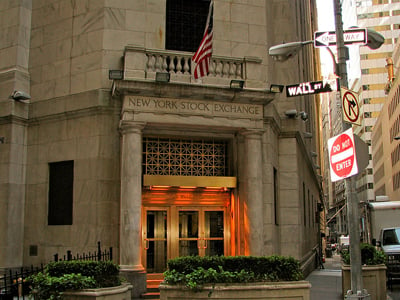U.S. Debt Culture and the Dollar's Fate
Mini Teaser: If the United States cannot get its fiscal house in order, the dollar’s privileged position as the world’s reserve currency may be at risk—at a time when there seem to be few if any plausible alternatives.
That in turn raises a question of whether declining living standards in the United States could eventually force a geopolitical withdrawal by Americans from the world stage. Allied nations from the UK to Israel to South Korea and Japan may soon see an end to unconditional American military and economic support.
America remains a very young, fluid country that is still trying to figure out its place in the world. While one hopes that the ethic of open borders and open markets that helped the world recover from World War II continues, Americans will be under great pressure in coming years to turn inward and may eventually revisit protectionist and interventionist policies if economic pressures become sufficiently acute. It has happened before.
But there is still plenty of room for hope and perhaps even optimism about the shape of things to come. One key component of the new international order may be a mechanism to help overly indebted, mature societies in the United States and EU make the adjustment process in the same way that the emerging debtor nations of the 1980s have become engines of growth today. By giving the other nations of the world greater responsibility in managing the global financial system, we may be able to hasten the day when all nations trade in a global clearinghouse system based on the competitive position of each. The notion of a global currency is attractive in theory and goes back to some of the ideas of Keynes and others at Bretton Woods. But it remains to be seen if investors want to embrace an ersatz global currency that is not connected to a dominant nation.
The reason that the dollar is the currency of choice in the free world is because of the American political system, not just economic or foreign-policy considerations. If that open system remains intact, the role of the dollar in the global financial system is unlikely to change. As I wrote in my 2010 book Inflated, if Americans gradually deal with the explosion of government in the post–New Deal era and steer the economic course back toward a more responsible fiscal formulation focused on individual rights and responsibilities, our future is quite bright. In that event, the dollar is likely to remain the center of the global financial system for some time to come.
But should America’s political leaders continue to embrace the policies of borrow and spend championed by Paul Krugman and other mainstream economists, the likelihood is that Washington will not be able to preserve the dollar’s special role. Just as nations cannot substitute inflation and debt for true production and employment without slowly destroying the underlying purchasing power of their people, America cannot continue to play a leading geopolitical role in the world if its domestic economy falters. And there seem to be few alternatives to the United States.
As America comes to accept that there are real limits on its economic and military power, the leading role of the dollar in the global economy eventually may have to end. In that event, the world will face a future with no single nation acting as the guarantor of global security and economic stability. Instead, we may see a world with many roughly equal nations competing for a finite supply of global trade and economic resources, precisely the situation that prevailed prior to World War I. The choice facing all societies going back to the Greeks, Romans, the British Empire and now America seems to lie between using inflation and debt to stimulate economic growth when real production proves inadequate and turning to war to create growth at the expense of others. Finding a way to avoid these two extremes is now the chief concern.
Christopher Whalen is a senior managing director of Tangent Capital Partners in New York City. He is the author of Inflated: How Money and Debt Built the American Dream (Wiley, 2010).
Part of TNI's special issue on the Crisis of the Old Order.
Image: Norbert Nagel, Mörfelden-Walldorf, Germany
Image: Pullquote: The reason that the dollar is the currency of choice in the free world is because of the American political system, not just economic or foreign-policy considerations.Essay Types: Essay
Pullquote: The reason that the dollar is the currency of choice in the free world is because of the American political system, not just economic or foreign-policy considerations.Essay Types: Essay 